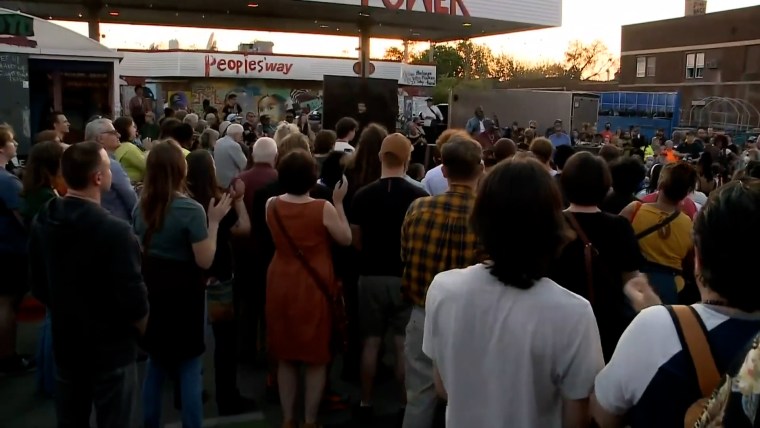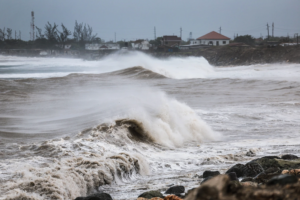The so-called pattern-or-practice investigation focused on widespread issues within the department following the 2020 killing of George Floyd.
The so-called pattern-or-practice investigation focused on widespread issues within the department following the 2020 killing of George Floyd.
June 16, 2023, 11:04 AM EDT
WASHINGTON — A federal investigation into the Minneapolis Police Department, launched in the wake of the 2020 murder of George Floyd, found that the police department and the city itself engage in a “pattern or practice” of excessive force and racial discrimination that violates both the United States Constitution and federal law.
The so-called pattern-or-practice investigation — like the federal investigations into police departments in cities including Baltimore; Ferguson, Missouri; and, most recently, Louisville, Kentucky — focused on widespread issues within the police department rather than individual incidents.
The Minneapolis Police Department, the probe found, “uses excessive force, including unjustified deadly force and other types of force”; “unlawfully discriminates against Black and Native American people in its enforcement activities”; “violates the rights of people engaged in protected speech”; and discriminates against people with behavioral health issues.

As was the case in several other cities, the DOJ investigation found “persistent deficiencies in MPD’s accountability systems, training, supervision, and officer wellness programs,” which contributed to the constitutional violations.
The Trump administration, under then-Attorney General Jeff Sessions, backed away from investigations of police departments, saying that such probes harmed law enforcement. Attorney General Merrick Garland rescinded Sessions’ memo in early 2021, and the Minneapolis probe was launched in April of that year.
Under Garland and Associate Attorney General Vanita Gupta, the Justice Department has worked to forge collaborative relationships with the law enforcement community. Gupta, a former American Civil Liberties Union official, had the backing of major law enforcement leaders when she was nominated in 2021.

The report acknowledged “the considerable daily challenges” of being a police officer who “must often make split-second decisions and risk their lives to keep their communities safe.” The report said that officers “work hard to provide vital services” and said that many officers spoke about their “deep connection” to the city and their desire to see the police department do better.
“Still, since the spring of 2020, hundreds of MPD officers have left the force, and the morale of the remaining officers is low,” the report stated. “Policing, by its nature, can take a toll on the psychological and emotional health of officers, and the challenges of the last few years have only exacerbated that toll for some MPD officers.”
The report said that the Justice Department anticipates working collaboratively with the city and police department, and it said federal officials appreciated the cooperation and candor of the police and city officials during the investigation.
The report noted the particular challenges in Minneapolis, a city with “stark” racial inequality and that is known along with neighboring St. Paul as the “Twin Cities.”
“By nearly all of these measures, the typical white family in the Twin Cities is doing better than the national average for white families, and the typical Black family in the Twin Cities is doing worse than the national average for Black families,” the report stated. “The median Black family in the Twin Cities earns just 44% as much as the median white family, and the poverty rate among Black households is nearly five times higher than the rate among white households. Of the United States’ 100 largest metropolitan areas, only one has a larger gap between Black and white earnings.”




